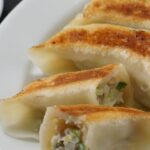
The Consumer Affairs Agency (CAA) held the 5th Advisors’ Meeting on Food Allergen Labeling in June 14, 2023. After making walnuts obligatory for the allergen labeling in March this year, the CAA published a policy plan to add “macadamia nuts“ to and remove “matsutake mushrooms“ from the list of recommended labeling for allergens in the future in the meeting material.
Background of changes in food items subject to recommended labeling
Comparing The national fact-finding survey of health damage caused by immediate-type food allergy in fiscal year 2021 published in June 2022 with the previous same survey (fiscal year 2018), macadamia nuts were found to be among the top 20 products in terms of number of immediate food allergy cases in the results of the two most recent surveys, which is the criteria for being a candidate of “Allergens for recommended labeling“.
An increase in the cases caused by macadamia nuts was confirmed at the same level as that of the cases caused by almonds (that were added to the recommended labeling list in 2019). The CAA is now conducting a fact-finding survey for processed foods using macadamia nuts until the end of August 2023 aiming at adding macadamia nuts to the list of “allergens for recommended labeling”.
Comparison between “mandatory and voluntary“ labeling systems for allergens
Unlike walnuts, which were added to the mandatory labeling list for allergens in March 2023, macadamia nuts are considered to be added to the recommended labeling list.
The differences between the allergen labeling systems (mandatory and recommended) are summarized as follows:
Extract partly from Regarding the concept of the target allergens for recommended labeling for allergens among foods containing allergens
(1) Allergens for mandatory labeling
Among foods that have been found to cause food allergy symptoms, foods for which labeling is particularly necessary in consideration of the number of symptoms and the severity are specified as “allergens for mandatory labeling“ in the Food Labeling Standards. (snip) Products containing those specified allergens must be labeled as “contains (allergen names)“… (omitted)
The designation of allergens for mandatory labeling is based on the assumption that the official testing methods have been established in the case of imposing penalties on products. (omitted) This is because the authority must be able to ensure the availability of monitoring based on those testing methods.
(2) Allergens for recommended labeling
The allergens that continue to cause a considerable number of cases and serious symptoms, but for which the number of cases is relatively smaller than that of allergens for mandatory labeling, are designated as allergens for recommended labeling and it is recommended that a “contains (allergen names)“ indication be made on the label whenever possible. (omitted) While providing as much flexibility as possible for items subject to the recommended labeling, for which voluntary labeling efforts by food-related business operators are encouraged, it is necessary to organize the concept of adding or deleting items on the list depending on their necessity, and to make the system highly predictable for both food-related businesses and consumers.
Update on the revision of the Codex standards
At the 5th Advisory Meeting, based on the status of consideration for allergen labeling in Codex Alimentarius , the Food Labeling Subcommittee discussed the revised policy of
-indication using an individual name of nuts
-setting thresholds for precautionary allergen Labeling (PAL)
and others.
At this stage, it is a draft for revision, but if you sell or intend to sell food products with allergen labeling in the Japanese market, we recommend reading it for reference.
Share/Like/Follow:
Newsletter Signup
We issue monthly e-newsletters, which provide you with the latest updates on food labeling/regulations in Japan.
If you want to make sure to not miss any issue, please click below.
Related Service
Research Services on Ingredients & Food Labeling -For the Japanese Market-
We verify the conformity of ingredients and additives with the standards for use in Japan based on specifications such as formulation lists. We also verify the conformity of the proposed labeling of ingredient names, nutrients, etc. with the labeling standards based on specifications such as formulation lists.
Label bank Co., Ltd. Regulatory Review and Development
She is engaged in research work on ingredients and additives imported to Japan from overseas, and provides consulting services on food standards, additives, and food labeling.






